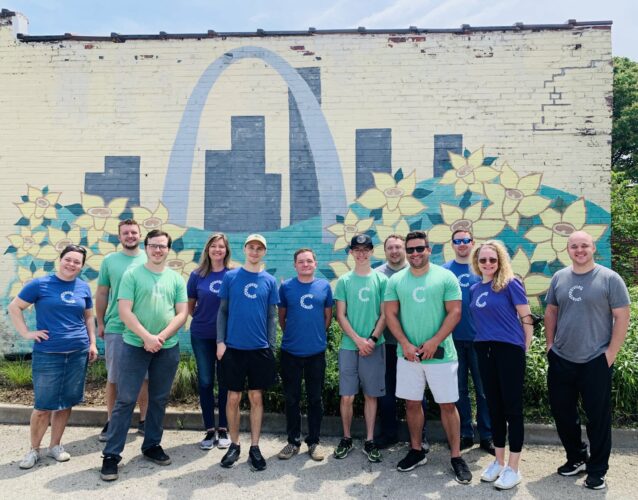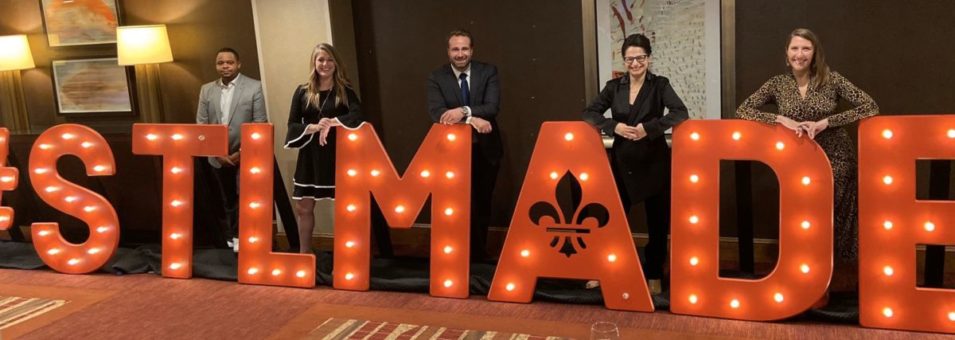
Presented by Cultivation Capital
Company Culture: How Hatchbuck’s Team-Driven Approach Drives Results For Everyone
Hatchbuck considers company culture a cornerstone of not only its day-to-day operations, but also its success.
In the world of work, company culture is one of the key selling points for those looking to attract top talent. In the startup space, it’s arguably one of the most important points.

According to Hatchbuck, a St. Louis-based startup that provides CRM and marketing solutions to small businesses, it’s not just about finding the right people, it’s about empowering them to do the things that made them right in the first place.
Hatchback Chief Sales and Marketing Officer Jonathan Herrick took some time this week to explain to EQ why they place such high value on a smart company culture. And why that approach shouldn’t be limited to the startup ecosystem.
Why culture is important and how it developed at Hatchbuck.
Culture is key for any business to succeed, especially in the early days, and it has been a catalyst for our growth here at Hatchbuck. My partner and I led a software company here in St. Louis before Hatchbuck, where I was passionate about driving a culture of engagement. That same intense passion and vision carried over to Hatchbuck.

My goal at Hatchbuck when we began building it was to be intentional about giving our team members the power to own and drive the culture and align them to the purpose of the business. It started by developing our purpose and core values, then hiring the right people that were aligned to those values.
Last, we focused on ensuring that everyone is actively living them out each and every day with each other, our customers and in the community.
Hatchbuck’s core values
- Be Yourself. “We value the uniqueness of each individual. Our team is stronger when we leverage everyone’s unique gifts and talents for the greater mission: To Help our customers grow.”
- Do the right thing. “Do you need a 100 page policy handbook when it comes to how we should treat team members and valued clients? We don’t think so, our motto is: ‘Do the Right thing'”
- Keep it simple. “We are relentless about making life easier for our customers and our software the easiest to use on planet earth.”
- Work hard and have Fun. “The best recipe for success is a healthy balance of dedication and laughter. We roll up the sleeves, smile a lot and celebrate.”
- Make a difference. “We believe in the power of small business and are blessed to serve alongside our clients every day. Through our giving back programs we will strive to make an impact on small businesses and entrepreneurs around the globe to help them learn and grow.”
Being conscious of culture helps a business succeed. Here’s how.
I see our team members living out our core values every day. They are having fun at work, being authentic and truly making a difference. Every day we all make sacrifices to leave our families and loved ones and come to work passionate about helping fulfill our purpose of helping small businesses.
As a leadership team we also work hard to model servant leadership – putting our team members first. When we serve our team, they are better equipped to serve our customers and turn them into raving fans. Those raving fans tell others about their experience and have a direct impact on helping us grow our business.
I see every team member going above and beyond to wow and delight our customers and it shows. In a recent industry report by G2 Crowd, Hatchbuck received a score of 97% for customer satisfaction, the highest of all marketing automation vendors.
Culture isn’t just perks, it’s about sharing a purpose.
I think there is a misconception of what workplace culture is. A lot of it is because everyone reads articles about Google or other behemoth companies that dish out crazy perks like steak dinners at lunch or six months vacation.
But more than throwing out a foosball table and coffee machine (although those are great perks), the million-dollar question is: are you creating a culture that truly engages the team in the purpose, vision and mission of the business?
In fact, according to Gallup, in a recent study, 68.5% of employees are either disengaged or actively disengaged. That means it becomes increasingly difficult for leadership to drive any real initiatives through successfully and even harder to attract and retain top talent.
In that same study 31.5% of employees were found to be engaged. Sadly, that is the highest number since 2000, and it hasn’t climbed very much in the last 15 years.
But the reality is, a culture like Google is not sustainable for 99% of the businesses out there. If you truly dig deeper into Google and the cultures of highly successful companies, they tend to have three core things in common:
- A laser focus on aligning their teams to their mission/purpose.
- Giving their people the autonomy to carry it out.
- Everyone living their core values every day.
Zappos is known for having a fun and open culture, but when you go to their site the first thing that comes up on their dynamic culture is a list of their core values and how they live by them.

I think you will always have companies who won’t place a value on creating a positive workplace culture, in fact, the numbers show it’s the majority. In order for change to occur there needs to be a conscious effort to improve the culture, and usually, that comes from leadership.
As companies scale, it is often hard to scale culture. However, Rackspace has done a phenomenal job at growing their business but being super intentional about stewarding their culture. Leadership has to understand the importance and be committed to it every day.
It’s not just startups who benefit.
Every company has a work culture, it’s your DNA. But the reality is, even if you are company-focused on the output of your team, you need to be intentional about driving your culture daily. It’s not just a feel-good strategy, it’s a foundational strategy for growth.
Southwest, the most successful and profitable airline giant, was built on company culture first: ‘Everything in our strategy our competitors could copy tomorrow. But they can’t copy the culture and they know it.’ It is the ultimate sustainable competitive advantage.









